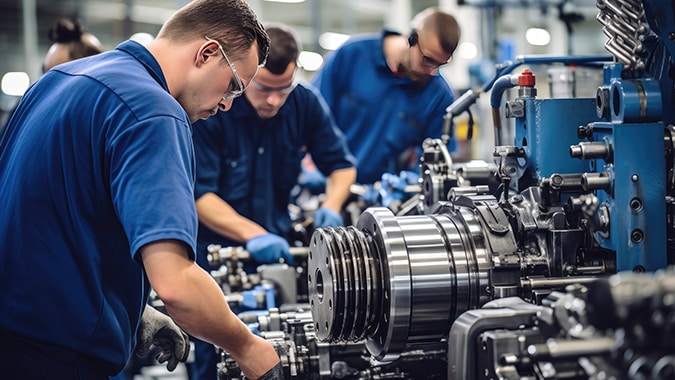The 2024 survey on manufacturing talent trends from the UKG Workforce Institute shows 3 in 4 manufacturing organizations (76%) have experienced moderate growth in demand for goods and services and 66% noted increases in production capacity in year-over-year comparisons.
The findings from more than 300 U.S. manufacturing HR leaders indicate manufacturers continue to build momentum heading into the final quarter of 2024, all while navigating continued labor challenges and external factors such as inflation and economic uncertainty.
The 2024 Manufacturing Talent Trends Report found that despite rising turnover and retirements among their frontline workforce, 74% of manufacturers report increased productivity, and 58% say total employee headcount continues to expand. However, production lines remain understaffed 31% of the time.
Moreover, 7 in 10 (69%) manufacturers say labor shortages impact their ability to meet production demands, and 40% experience production delays at least once a week. The UKG data showed that overtime hours as a proportion of total hours worked is highest in manufacturing, compared with other industries.
Navigating Persistent Talent Recruitment Challenges
While 76% of manufacturers report year over year revenue increases — with 18% citing a significant jump — labor challenges from recruitment to retention continue. For example, 61% of manufacturers say they’re struggling to fill critical labor gaps. In fact, manufacturers’ top five recruitment challenges have become more severe in 2024 compared to last year.
- Challenge #1: Finding talent with the right experience (56% in 2024 vs. 46% in 2023)
- Challenge #2: Finding talent with the right skills (47% in 2024 vs. 42% in 2023)
- Challege #3: Maintaining a strong talent pipeline (43% in 2024 vs. 39% in 2023)
- Challenge #4: Finding local talent (41% in 2024 vs. 27% in 2023)
- Challenge #5: Competing with other manufacturers for skilled talent (39% in 2024 vs. 31% in 2023)
To help retain the talent that manufacturers already have, 71% of manufacturers say they provide frontline workers with the same benefits as corporate employees. However, three in 4 manufacturers admit they’re having trouble providing a key benefit desired by their frontline workforce: greater flexibility.
With investment in new manufacturing construction tripling over the past three years, and manufacturing firms facing moderate-to-significant increases in turnover and retirement in their workforces, there are substantial opportunities for employment in manufacturing sector now and in the future, the report said.




